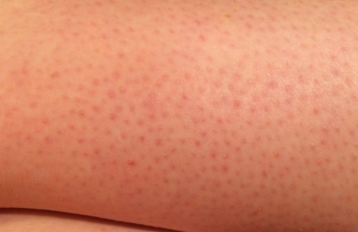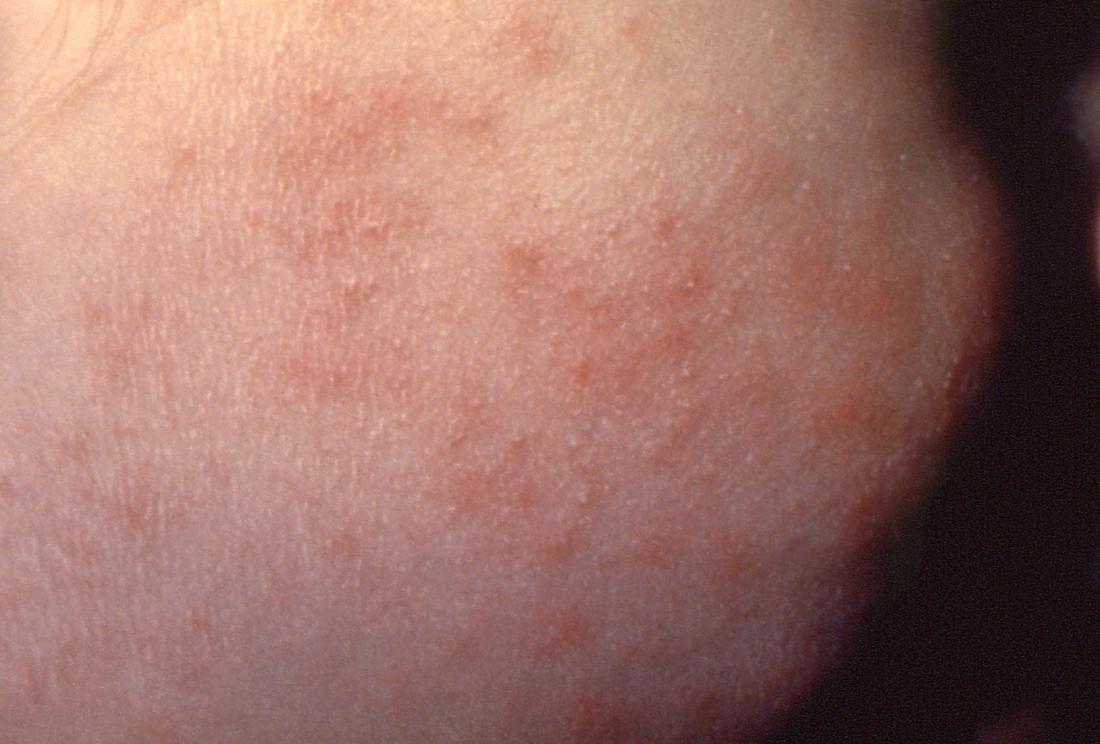

If you develop angioedema, you may need to use medication like an EpiPen to relieve the reaction quickly or seek medical attention.įor most people, hives go away within a day or so. But, in some cases, the swelling associated with hives occurs deeper in the skin, a condition called angioedema, which can be more dangerous. In most cases, hives can be treated with antihistamines or corticosteroids to calm the reaction. It can appear as clusters of small, raised red or pink bumps or as larger welts in clusters or on their own, the AAD says. Allergic reactions to food or medicineĮating a food or medicine you're allergic to can cause you to break out in hives (also called urticaria), an itchy red rash.
TINY PINPOINT RED DOTS ON SKIN NOT ITCHY PATCH
They can do a patch test to figure out what you might be allergic to, and they can help you sort through your products, environmental factors, and lifestyle habits that could be causing the problem. You can also take an over-the-counter oral allergy medication and use an over-the-counter 1 percent hydrocortisone product, both of which will help reduce any itchiness.īut if you’re not sure what caused it or whether or not you might have allergy, you should check in with a dermatologist. If the reaction is on your face, stick to a basic skin-care routine composed of gentle products for a few days or weeks. While you wait for it to heal, you should wash your skin with cool water to get the product off and soothe the skin. Often just avoiding the trigger can clear the reaction, the AAD says. If you know what caused the reaction, obviously stop using it. The treatment for contact dermatitis depends on its severity and the root cause. It’s not always easy to predict what types of products will cause this type of reaction, but some common culprits include preservatives, strong acids in skin-care products, fragrances and dyes. You’re more likely to get this type of contact dermatitis shortly after using a product for the first time. In this case, your skin is getting irritated for one reason or another due to an ingredient in the product. Irritant contact dermatitis doesn’t involve an actual allergic response, but it can still be uncomfortable. Sometimes, being exposed to sunlight or sweating can trigger your reaction to a compound that you’re allergic to, the American Academy of Dermatology (AAD) explains, which makes it seem like the reaction came out of nowhere.

You can be allergic to basically anything in cosmetics and skin-care products, but some common allergens include botanical extracts, essential oils, fragrances, and dyes. If it’s a true allergic reaction like this, you might notice some swelling and redness that goes beyond the area that you applied the product, SELF explained previously. But, after a few uses, your skin becomes sensitized to it and you react. If your dermatitis is due to an allergy, you might not have a reaction the first time you use the substance. “In some cases, when the skin comes in contact with a chemical topically, it can either lead to direct irritation or elicit an immune response causing an allergic reaction,” Joshua Zeichner, M.D., director of cosmetic and clinical research in dermatology at Mount Sinai Hospital in New York City tells SELF.Īllergic contact dermatitis happens when your skin comes into contact with a substance that it’s actually allergic to.


 0 kommentar(er)
0 kommentar(er)
